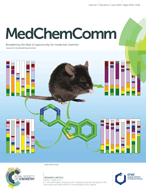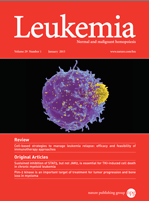 The author of a paper about insulin has retracted it due to “extensive text and data overlap” with another paper.
The author of a paper about insulin has retracted it due to “extensive text and data overlap” with another paper.
In November 2015, MedChemComm issued an expression of concern (EOC) for the same paper. According to the EOC, the author of the paper, Yong Yang, flagged the paper to the journal, citing problems with authorship and portions of text overlap, which Yang attributed to an editing company.
The editor-in-chief of the journal told us Yang’s institution — China Medical University — carried out an investigation into the case at the journal’s request.
We’ve also found a 2015 retraction for Yang, after he published a paper without the okay of his previous institution in Texas.
Here’s the retraction notice: Continue reading Author pulls study for duplication, blames editing company





